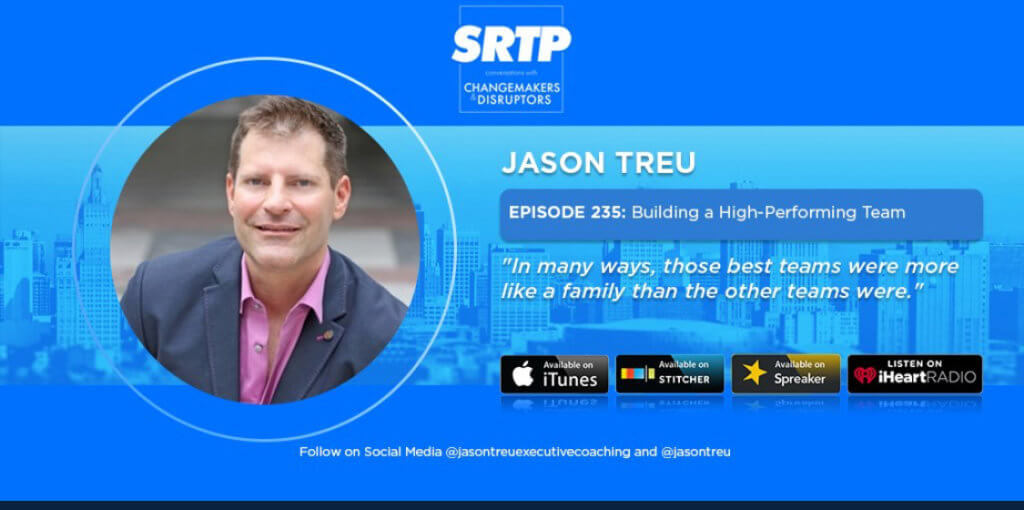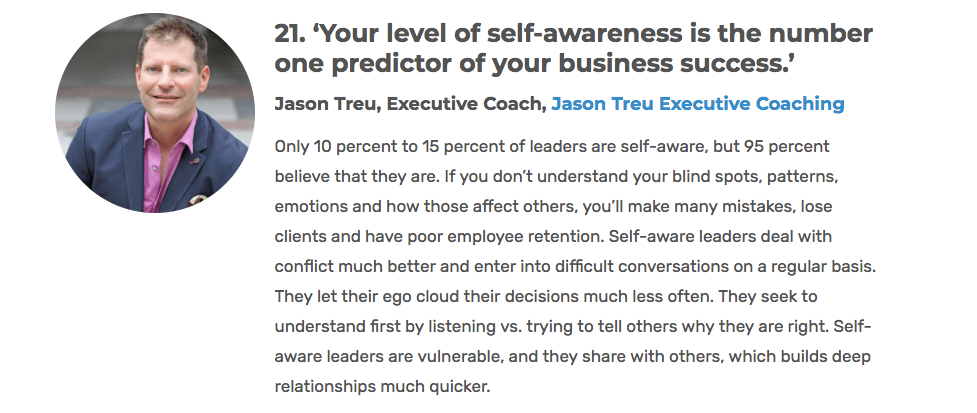by Jason Treu | Sep 11, 2018

Getting to work with Jason was a game-changer. I thought my team was close before playing Jason’s Cards Against Mundanity, but seeing how much they bonded during the hour we spent playing was amazing. I cannot stress enough – ANY relationship will be strengthened by playing this game. I’ve played with family members, friends and coworkers in other departments and the results speak for themselves. Beyond that, Jason has continued to offer his insights & suggestions on how I can better navigate difficult situations in the workplace. I’m a better leader with a higher functioning team after my time with Jason.
KATE STOTT
DIRECTOR OF ENTERPRISE OPERATIONS
WORLDWIDE EXPRESS
by Jason Treu | Sep 7, 2018

Maximize the potential and performance of your team by learning how to build a high-performing team straight from executive coach and best-selling author @jasontreu. Don’t miss this amazing episode on #leadership on Stop Riding the Pine. It’s his 2nd time on the podcast.
Listen now! bit.ly/2NggIvy
#companyculture #entrepreneur #hrmetrics #teamwork #performance #careeradvice #ceo #executive #training #learning
by Jason Treu | Sep 7, 2018
According to the Small Business Administration (SBA), about 33 percent of all businesses will fail during their first two years. This is why it’s important that business owners are guided by principles to reach company goals every day. We asked the experts to share the business philosophy they live by that helps them stay focused as decision makers.
Here are the top 30 best business philosophies from the pros.

‘Your level of self-awareness is the number one predictor of your business success.’
Only 10 percent to 15 percent of leaders are self-aware, but 95 percent believe that they are. If you don’t understand your blind spots, patterns, emotions and how those affect others, you’ll make many mistakes, lose clients and have poor employee retention. Self-aware leaders deal with conflict much better and enter into difficult conversations on a regular basis. They let their ego cloud their decisions much less often. They seek to understand first by listening vs. trying to tell others why they are right. Self-aware leaders are vulnerable, and they share with others, which builds deep relationships much quicker.
Here is one I really liked:
3. ‘The single biggest problem in communication is the illusion that it took place.’ — George Bernard Shaw
Every month, Dr. JP Pawliw-Fry surveys more than 30,000 people in the workplace through the Kellogg School of Management’s Executive Education program to narrow in on the traits and qualities that differentiate the top from the poor performers. He found the best leaders never avoid the hard part of a conversation. Most of us will omit the last 8 percent of a difficult discussion, assuming the other person understood what was implied. This creates tension and frustration when nothing changes since the two didn’t fully understand each other. For everyone to work at maximum efficiency, it’s crucial to finish up that last 8 percent of the tough conversations.
by Jason Treu | Sep 6, 2018
Here’s a tip on how to give better feedback at work. Start the conversation, “I’m giving you this feedback because I have very high expectations of you & I’m very confident that you can reach them.” Then proceed to give constructive feedback.
#careertips #growth #feedback #HR #executivecoach #managingothers #linkedin #twitter #facebook
by Jason Treu | Aug 31, 2018
Questions you ask will play a major role in your business success with managers, leaders, clients, etc.
Increase your authenticity, truth-telling, vulnerability, caring and candidness in your questions, and you’ll see success rocket.
For example, if you want to know where your business relationship stands with someone, which question would work better and be more clear and accurate?
Let’s take an example with your boss or any senior level manager. Would you choose one or two?
1) Is everything good in our relationship? Or how do you think our relationship is going?
2) Rate our relationship on a scale 1-10 (one being poor, 10 great). Why did you give that rating? What could I do to move it closer to a 10?
Which would would you choose?
#2 is significantly better and paints a much more accurate picture of where you stand. 99% of people have an innaccurate view of their relationship (bad or good). Because they are uncomfortable with truth-telling.
Questions matter.
Ask better ones.




